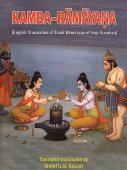Manu, Maṉu, Māṉu, Mānu: 37 definitions
Introduction:
Manu means something in Buddhism, Pali, Hinduism, Sanskrit, Jainism, Prakrit, the history of ancient India, Marathi, Hindi, biology, Tamil. If you want to know the exact meaning, history, etymology or English translation of this term then check out the descriptions on this page. Add your comment or reference to a book if you want to contribute to this summary article.
Manu has 36 English definitions available.
Images (photo gallery)
Languages of India and abroad
Sanskrit dictionary
[Deutsch Wörterbuch]
Source: Cologne Digital Sanskrit Dictionaries: Böhtlingk and Roth Grosses Petersburger WörterbuchManu (मनु):—
Source: Cologne Digital Sanskrit Dictionaries: Sanskrit-Wörterbuch in kürzerer FassungManu (मनु):—1. —
1) Adj. verständig. —
2) m. — a) Mensch , Mann ; Menschheit. — b) Denkkraft , Gedanke ; Pl. die Geisteskräfte. — c) Spruch , Gebet , Zauber , -spruch. — d) Nomen proprium eines göttlichen Wesens , Vaters der Menschen. Es werden Manus mit folgenden patronymischen Bezeichnungen genannt ; Sāṃyaraṇa oder Sāṃvaraṇi , Vivasvant oder Vaivsvata (zwei Manu als Söhne des Sonnengottes [100,7.,11]), Sāvarṇya , Vāsiṣṭha , Tāpasa und Svāyaṃbhuva oder Hairaṇyagar bha. In der späteren Chronologie eröffnet Manu Svāyaṃbhuva die Reihe von sieben Manu , von denen jeder einer best. Zeitperiode ( manvantar) vorsteht und in dieser als Schöpfer und Erhalter der Geschöpfe auftritt. Die übrigen heissen Svārokiṣa , Auttami (Uttama) , Tāmasa , Raivata , Cākṣuṣa und Vaivasvata. Später werden noch sieben zukünftige Manu angereiht. Daher — e) Bez. der Zahl vierzehn. — f) Nomen proprium — α) eines Agni. — β) eines Rudra. — γ) eines Sohnes des Kṛśāśva. — δ) eines Astronomen. —
3) *f. — a) Manu’s Gattin. — b) Trigonella corniculata [Rājan 12,134.]
--- OR ---
Manu (मनु):—2. m. Mensch. Nur in der Verbindung manāvadhi.
Sanskrit, also spelled संस्कृतम् (saṃskṛtam), is an ancient language of India commonly seen as the grandmother of the Indo-European language family (even English!). Closely allied with Prakrit and Pali, Sanskrit is more exhaustive in both grammar and terms and has the most extensive collection of literature in the world, greatly surpassing its sister-languages Greek and Latin.
See also (Relevant definitions)
Starts with (+290): Maanu-chhuttinu, Maanush, Manaje, Manu seshing, Manu Smriti, Manu-chuttinu, Manu-murai-kantacolan, Manu-pasupu, Manu-tarmacastiram, Manua, Manubai, Manubhu, Manucan, Manucarita, Manucumiruti, Manudivi, Manudukkurundu, Manuesara, Manuga, Manugavya.
Ends with (+89): Adhamanu, Anantaparamanu, Anjaneyamanu, Anumanu, Ashtavimshatitamamanu, Atidurgamanu, Auttamamanu, Bhadrakalimanu, Bhrityaparamanu, Brihomanu, Cakshumanu, Cakshushamanu, Cakshushantaramanu, Camanu, Caturdashamanu, Cevamanu, Chakshumanu, Chakshushamanu, Chakshushantaramanu, Cheramanu.
Full-text (+9198): Manvantara, Manus, Savarni, Dharmasavarni, Svarocisha, Manava, Svayambhuva, Manuja, Akalmasha, Maanu-chhuttinu, Manayi, Auttami, Raivata, Manuniti, Manuyuga, Manu-tarmacastiram, Manuvakkiyam, Manucumiruti, Manunul, Jnanamaya.
Relevant text
Search found 207 books and stories containing Manu, Maanu, Maṇu, Māṇu, Maṉu, Māṉu, Mānu; (plurals include: Manus, Maanus, Maṇus, Māṇus, Maṉus, Māṉus, Mānus). You can also click to the full overview containing English textual excerpts. Below are direct links for the most relevant articles:
Rig Veda (translation and commentary) (by H. H. Wilson)
Garga Samhita (English) (by Danavir Goswami)
Verse 5.18.7 < [Chapter 18 - Uddhava Hears the Gopīs’ Words and Returns to Mathurā]
Verse 1.5.28 < [Chapter 5 - The Lord’s Appearance]
Verse 6.3.10 < [Chapter 3 - Lord Balarāma’s Wedding]
Manusmriti with the Commentary of Medhatithi (by Ganganatha Jha)
Verse 1.102 < [Section LIX - Superiority of the Brāhmaṇa]
Verse 1.61 < [Section XXXVI - Manvantara and the Seven Manus]
Verse 1.36 < [Section XX - Creation of Marīci and other Sages]
Vasudevavijaya of Vasudeva (Study) (by Sajitha. A)
Strīpratyaya (Feminine affixes) < [Chapter 3 - Vāsudevavijaya—A Grammatical Study]
Poetic charm in Vāsudevavijaya < [Chapter 4 - Vāsudevavijaya—A Literary Appreciation]
Dharmaśāstra (the Dharmasūtras and Smṛtis) < [Chapter 5 - Impact of other Disciplines in Vāsudevavijaya]
The Brahmanda Purana (by G.V. Tagare)
Chapter 1 - Description of the dissolution of the Universe (a) < [Section 4a - Upasaṃhāra-pāda]
Chapter 36 - The Lineage of Manu: Manvantaras < [Section 2 - Anuṣaṅga-pāda]
Chapter 1 - Contents of the Brahmāṇḍa Purāṇa < [Section 1 - Prakriyā-pāda (section on rites)]
The Bhagavata Purana (by G. V. Tagare)
Chapter 11 - The concept of Time: Manvantaras and life-spans of Men and Gods < [Book 3 - Third Skandha]
Chapter 14 - Duties of Manus and Their Functionaries < [Book 8 - Eighth Skandha]
Chapter 13 - Description of the Future Manvantaras < [Book 8 - Eighth Skandha]
Related products






